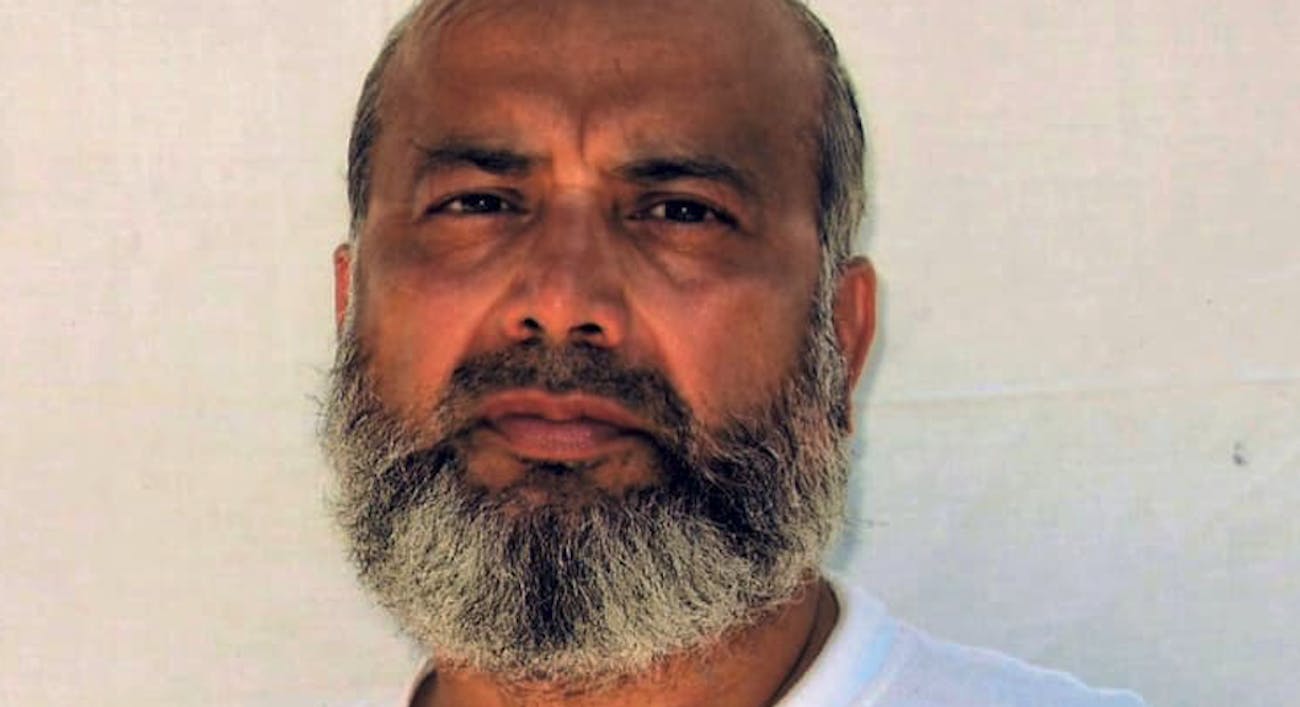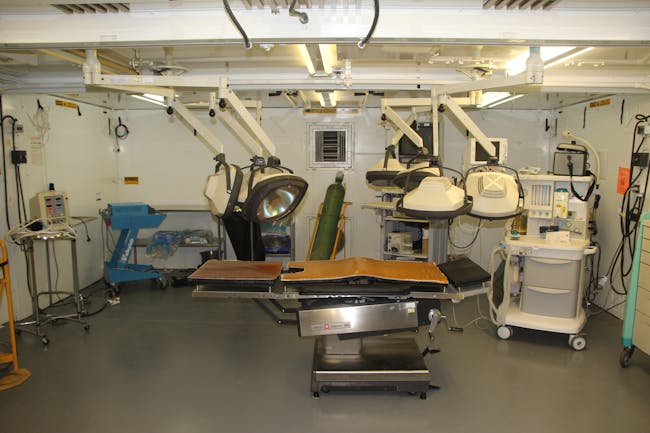Guantanamo Bay? Old Folks Home, Medical Facility, Cemetery
"It is paradoxical. But we don't let people just die in this country."
"It violates all of our ethics."
Dr. Stephen N. Xenakis, psychiatrist, retired U.S. Army brigadier-general
"These are the ones that could not be released. Many of these gentlemen are still at war with the United States."
"Any act of resistance, no matter how small -- they are still fighting the war through these minor acts of resistance."
Admiral John Ring, base commander
"There has been a lot of thought put into what preparing for an aging detainee population looks like and what infrastructure we need to have in place to do that safely and humanely."
Anne Leanos, public affairs director, Joint Task Force Guantanamo
“It would either require modifications to the current facilities, because everything we have is two floors connected by stairs."
"Obviously that wouldn’t work too well for someone who’s in a wheelchair. If it requires wheelchair lifts and whatnot, that’s something we’ll have to retrofit or build a new facility for."
Colonel David Heath, Guard Force Commander
"[In the] next three to five years [detainee mobility is expected to become an increasingly important issue. Are the doors in the cells wide enough to move wheelchairs in and out? Are there ramps to reach the medical facility, those types of things."
"And we’ve just started looking at that, so I can’t tell you whether we’re ready or not but it’s something we will plan for."
"So far it has not had an effect, but I believe it will. If the detainees stay here or stay under law of war detention for several more years, we will begin to have to deal with what any aging population deals with."
Admiral Peter Clarke, base commander
 |
"Many Guantánamo detainees continue to suffer from the lasting effects of torture and indefinite detention, which have caused significant medical and mental health needs that will only increase as detainees age."
"I know from my work with torture victims and Guantánamo detainees that it is nearly impossible for a person to establish a positive therapeutic relationship with mental health personnel in the very place where he or she was tortured."
"The U.S. government has neglected and concealed the extent to which detainees have suffered, and this precludes the possibility of meaningful medical and psychological care as long as the detainees remain at Guantánamo."
Vincent Iacopino, Medical Director, Physicians for Human Rights
 |
| Saifullah Paracha in a photo released by his attorney David H. Remes, is 68 |
The wardens of Guantanamo Bay anticipate that any time soon they will be faced with urgent incidents of hip and knee replacement requirements. In the interim, they can stock up on sleep apnea breathing masks, install grab bars on cell walls, and put dialysis equipment on standby and install wheelchair ramps where applicable.... It has been in use for the past 17 years, to house Islamist fighters and terrorists, who are all, unsurprisingly, 17 years older themselves and in none too good condition.
Where at one time the U.S. administration spoke of closing the prison, it now envisions retaining it for the purpose it was conditioned for until such time as the need for it is no longer in existence. Authorities of the U.S. Defense Department are prepared to continue operating Guantanamo Bay until the last of the inmates is gone. As many were shipped out as their countries of origin would agree to take. The remainder will continue to grow into their elderly years there, and eventually die.
In the not too distant future what is now purely a prison with generalized medical facilities will become a nursing home with more sophisticated medical facilities preparing to treat chronic and deadly illnesses, from cancer and advanced heart conditions to dementia. The detainees are even now evincing symptoms of high blood pressure and high cholesterol, joint pain, diabetes and sleep apnea.
When military personnel require medical care themselves and the small base hospital is not outfitted to provide it yet, they travel 1,232 kilometers to Jacksonville, Florida to a major American military hospital for expert care. Eventually, the base hospital at Guantanamo will be outfitted with more sophisticated medical devices, perhaps even an M.R.I. Law forbids prisoners held under Law of War detention to enter the United States.
Cardiologists for over a decade have travelled to Cuba to consult on some cases, and other specialists make regular visits for colonoscopies and orthopedic injuries. Inmates with long-healed battlefield amputations are visited by prosthetists. There have not yet been any incidents of cancer onset, and no one yet must make use of a wheelchair without being able to manage it independently. Still, senior staff are considering the number of cells required with grab bars, ramps and a larger space for gurneys, wheelchairs and showers.
The Guantanamo Bay prison's revolving medical staff of 140 doctors, nurses, medics and mental health care providers look after the needs of detainees while providing services to the 1,500 troops stationed at the base. A Muslim chaplain has been appointed to the base. A fenced plot of land is marked "Entrance Islamic Cemetery" where a number of prisoners over the years -- nine -- have died since 2006, and it is located on an off-limits area of Guantanamo.
 |
| The medical facilities at Guantanamo Bay. Leaders at the military detention facility say the clock is ticking down on how the facility can serve an aging population |
"[Are there some kinds of cancer his staff and outside specialists wouldn’t be able to treat here?] As it stands today, yes."
"When you start hitting those issues, and we have to address this issue, then the decision would have to be made at that point how do you care for that particular patient."
Navy Captain Richard Quattrone, chief medical officer, Guantanamo Bay
Labels: Guantanamo Bay, Health, Medical Care, Prisoners, United States

<< Home